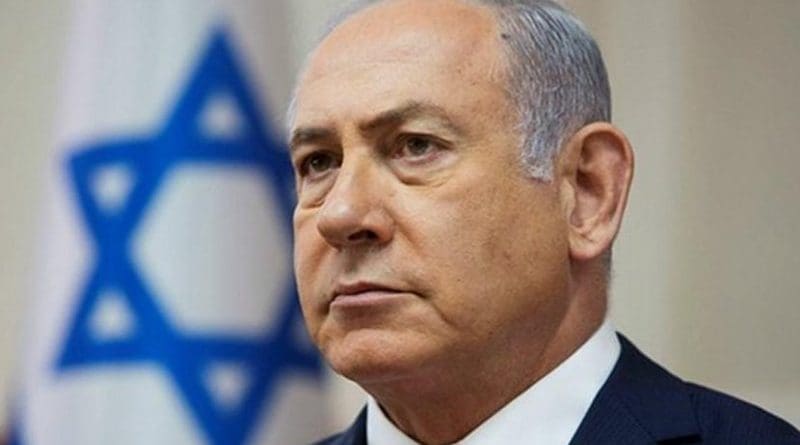Netanyahu’s Failure Gives Palestinians Another Chance – OpEd
By Ray Hanania
Israeli politics was turned upside down last week as Benjamin Netanyahu failed to form a new government following his election victory on April 9. Rather than give his political rival, Benny Gantz, a chance to form a government, Netanyahu dissolved the Knesset, forcing new elections on Sept. 17.
For Netanyahu, it was more than a political failure, as his personal future is also at stake. Israeli Attorney General Avichai Mandelblit is preparing to indict Netanyahu on corruption charges. The prime minister had hoped that, by winning the election, he would be able to pass a new law that would give himself immunity from prosecution. Mandelblit is expected to announce indictments on Oct. 2.
The surprise developments were not caused by Gantz — Netanyahu’s Likud party won 37 seats and Gantz’s Blue and White alliance won 36. They were caused by one of Netanyahu’s allies, former Defense Minister Avigdor Lieberman, who last November withdrew from Netanyahu’s coalition after the prime minister refused to back a law requiring Jewish religious yeshiva students to serve in the Israeli military.
The collapse of Netanyahu’s government and the fracturing of the right-wing coalition’s political strength because of the increased expectations of Netanyahu being indicted has created a new opportunity for Palestinian voters to reassert their influence and dislodge Netanyahu, who has controlled Israeli government — and opposed peace with justice for Palestinians — since 2009.
If Israel’s Arab minority can energize their vote, they could restore the goal of Palestinian peace with justice as a priority, a goal both Netanyahu and Gantz spurned during their campaigns. Netanyahu opposed the two-state solution, rejected Palestinian statehood and ran a campaign that demonized Palestinians, using the slogan “It’s Tibi or Bibi” — a reference to Arab Knesset leader Ahmad Tibi. Gantz refused to partner with Arab parties during the election campaign and even avoided discussing the two-state solution.
The issue of the occupation, Palestinian rights and Palestinian statehood, which in prior elections were top campaign issues, were easily pushed aside in the April vote. The concerns of Palestinians were marginalized.
Netanyahu’s troubles could change all that, but it is up to the Arab voters and their political leadership.
In 2015, the politicians set aside their petty differences and formed the Joint List, which won 13 seats in the 120-member Knesset. That result could have been even better if the Palestinian voters, who make up 20 percent of Israel’s population, had turned out and voted in force.
The Joint List collapsed into two separate coalitions ahead of the last election, resulting in the loss of three seats in the Knesset. The internal strife prompted many Palestinian voters to instead vote for Zionist slates, with Meretz receiving most of these votes.
The two Arab lists each had different agendas. Hadash-Ta’al, led by Tibi and Ayman Odeh, called for Palestinian statehood and championed the empowerment of Palestinian voters, winning six seats. Supporters of United Arab List-Balad called for Israel to become a secular state. It won four seats.
But, with so much at stake, Palestinians need to wake up and their candidates need to set aside their petty differences and unify again, as they did in 2015. The challenges ahead are bigger than their individual personalities. They need to strategize on how to get more Palestinians to vote and at least make the Arab minority a critical part of any future Israeli government.
Their goal should be to make it impossible for any new government to form without their involvement, and force whoever does form the government to recognize their rights.
Palestinian voters don’t have to imagine what a future looks like with them marginalized by Israel’s apartheid government. Had Netanyahu formed a coalition, Israel would have continued its anti-Arab policies, further annexing West Bank lands, solidifying control over East Jerusalem, and adopting more discriminatory laws in addition to the 65-plus that already codify Israeli discrimination against non-Jews.
It is one thing to have a long-term vision like creating a Palestinian state. But sometimes it is more important to have a short-term agenda with goals that are more achievable, like strengthening Palestinian rights. A strong, unified voter bloc could reverse many of the anti-Arab laws. It could also strengthen the voice against policies that weaken the rights of Palestinians living under occupation or reverse Israel’s embargo against the Gaza Strip.
Palestinian voters have a powerful potential, and yet nothing seems to move them. They are 20 percent of the population, which means that in theory they could have 20 percent of the seats in the Knesset. That means, of 120 seats, Palestinians should control 24, making them among the country’s most powerful voices.
Right now, that is more achievable in the short term than establishing a Palestinian state in the long term.

